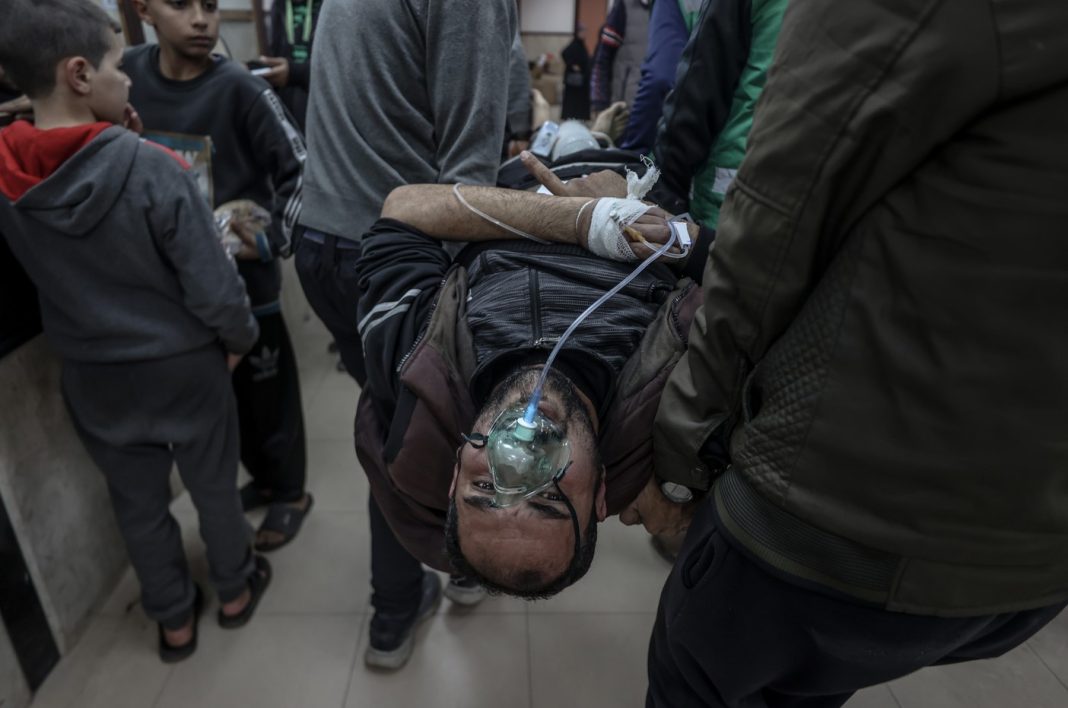Guterres said he was “especially alarmed” after Israel announced last week that it intends to focus its military assault in Gaza on the southern city of Rafah, where more than a million people have sought shelter.
“Such an action would exponentially increase what is already a humanitarian nightmare with untold regional consequences,” he told the UN General Assembly on Wednesday.
“It is time for an immediate humanitarian ceasefire and the unconditional release of all hostages,” he added.
Israeli forces launched a devastating assault on Gaza with the aim to “destroy” Hamas in response to the Palestinian group’s attack on southern Israel on October 7. At least 1,139 people were killed in the Hamas attack.
Israel has since bombarded the territory relentlessly and launched a ground invasion, leaving much of Gaza in ruins. At least 27,700 people have been killed in the Israeli assault, according to Palestinian authorities in Gaza, and more than 80 percent of the population has been displaced.
In his address on Wednesday, Guterres also called for reforms to the Security Council, which has been unable to agree on a joint position on the war in Gaza despite calls from multiple UN agencies for an urgent ceasefire.
“The United Nations Security Council – the primary platform for questions of global peace – is deadlocked by geopolitical fissures,” he stressed.
“This is not the first time the Council has been divided – but it is the worst. Today’s dysfunction is deeper and more dangerous.”
Guterres added that unlike during the Cold War, when “well-established mechanisms helped manage superpower relations”, those mechanisms are gone “in today’s multipolar world”.
“Our world is entering an age of chaos … a dangerous and unpredictable free-for-all with total impunity,” he warned.
The UN chief urged world leaders to seize the “Summit of the Future” opportunity, which will be held in September in New York on the sidelines of the annual General Assembly, to “shape multilateralism for years to come”.
He also mentioned that as conflict grows worldwide and humanitarian needs are “at an all-time high,” funding was not “keeping pace”.
